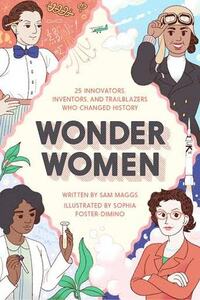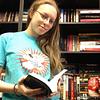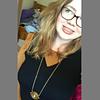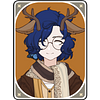Take a photo of a barcode or cover
212 reviews for:
Wonder Women: 25 Innovators, Inventors, and Trailblazers Who Changed History
Sophia Foster-Dimino, Sam Maggs
212 reviews for:
Wonder Women: 25 Innovators, Inventors, and Trailblazers Who Changed History
Sophia Foster-Dimino, Sam Maggs
A collection of mini-bios, Wonder Women is a very small subset of the accomplished women who've been forgotten, ignored, or had there achievements stolen from.
Out of the top-billed women, I had heard of exactly two: Ada Lovelace and Emmy Noether, so this was a sorely needed read for me. (I knew about a smattering more of the women who get short paragraphs at the end of each chapter)
Sam Maggs writes very breezily. These are much more like PR pieces than than dry biography, and they way I see the book working is to get you interested in some of these women and pushing you to learn more about them. (Stand-outs to me: Sarah Emma Edmonds, a Canadian solider and spy, and Noor Inayat Khan, an Indian-American spy who ended up executed by Nazis in WW2). Sources are provided of course!
Super fun, very fascinating!
Out of the top-billed women, I had heard of exactly two: Ada Lovelace and Emmy Noether, so this was a sorely needed read for me. (I knew about a smattering more of the women who get short paragraphs at the end of each chapter)
Sam Maggs writes very breezily. These are much more like PR pieces than than dry biography, and they way I see the book working is to get you interested in some of these women and pushing you to learn more about them. (Stand-outs to me: Sarah Emma Edmonds, a Canadian solider and spy, and Noor Inayat Khan, an Indian-American spy who ended up executed by Nazis in WW2). Sources are provided of course!
Super fun, very fascinating!
Very interesting
Very interesting read on women we should all know about. They are all important to our history. I am glad I read this and learned more about these women.
Very interesting read on women we should all know about. They are all important to our history. I am glad I read this and learned more about these women.
I was so excited to receive this as an ARC from my library rep at PRH. I enjoy Sam Maggs and I really liked the concept of Wonder Women - as she says in the acknowledgements, it is a cross between textbook and Tumblr. I had never heard of the majority of these women, and having the pleasure of learning about them with Sam Maggs as the leader of the journey was a delight. I hope this little book makes its way to lots of young people's bookshelves - it is full of inspiration to kick butt.
Could've sworn I already wrote a review, but apparently not?
Anyway, This book is intentional about being intersectional and that is great. The short little sections are great in snippets and I appreciated the combination of interviews with living women and the historical stories.
I will say that I think this book perpetuates the harmful single inventor/genius narrative and that was frustrating. It's not enough to bring singular women into the fold of history's greats, it would be better to see that history's great achievements are often made possible by multiple people working together, in small or big ways.
Anyway, This book is intentional about being intersectional and that is great. The short little sections are great in snippets and I appreciated the combination of interviews with living women and the historical stories.
I will say that I think this book perpetuates the harmful single inventor/genius narrative and that was frustrating. It's not enough to bring singular women into the fold of history's greats, it would be better to see that history's great achievements are often made possible by multiple people working together, in small or big ways.
I LOVED this book. It's the type of book I would have wanted when I was a younger kid.
Not only is Maggs a really funny writer, but they are also really clever and diverse; for example, the first person in this novel who was interviewed was a transgender woman, and many of the women written about in the novel are women of colour, lesbian or bisexual women, and there's a transgender woman from the 1700s (I believe. It might have been the 1600s).
This book was so well put together too. Overall, I really, really loved it, and would totally recommend it to anyone.
Thank you to Netgalley and the publisher for an ARC!
Not only is Maggs a really funny writer, but they are also really clever and diverse; for example, the first person in this novel who was interviewed was a transgender woman, and many of the women written about in the novel are women of colour, lesbian or bisexual women, and there's a transgender woman from the 1700s (I believe. It might have been the 1600s).
This book was so well put together too. Overall, I really, really loved it, and would totally recommend it to anyone.
Thank you to Netgalley and the publisher for an ARC!
“There are so many attitudes that need to be adjusted, so many biases that need to be addressed”
Wonder Women, by Sam Maggs, is not the book for anyone who believes that a successful woman is one who is slim, beautiful, amenable and capable of snagging a husband. Successful women, like successful men, are individuals who achieve things for themselves, and this book introduces the reader to dozens of ladies whose work added significantly to their area of expertise. They were innovators, inventors and trailblazers despite the ire they encountered from the patriarchal system. Naturally, many of them were denied credit for their work. History grants accolades to straight, white men as if they are the only people born with brains and the ability to use them. As is demonstrated within these pages, that ability was often lacking when it came to dealing with the opposite sex.
The book is divided into chapters introducing the accomplishments of women of Science, Medicine, Espionage, Innovation and Adventure. Within each chapter, five women are profiled followed by a couple of paragraphs on seven more. Each chapter is rounded off with a Q&A from a current expert in the area discussing their experiences as a women working in a male dominated field.
To achieve their aims, women often had to use subterfuge. Sisters worked with their brothers, wives with husbands, professors with lesser qualified male colleagues. Ideas were willingly shared for scientific advancement leading to men claiming credit for discoveries. Papers by women detailing the exact same research and results, sometimes published years before, were ignored.
“I’m not surprised at what I’ve done. I’m only sorry I couldn’t have had as good a chance as a boy, and have been put to my trade regularly”
Men in every time, place and discipline underestimated their female colleague’s skills. In one example, a morse code operative training for a new role was magnanimously offered a booklet by her superior, that some of his boys had found helpful, as she may need its advice to proceed. He was unaware that she had written it.
I most enjoyed the chapters on areas where I have a personal interest – Science and Medicine. In Espionage and Adventure some of the women came across as morally suspect, although being nice has never been a prerequisite for achievement. There are plenty of men lauded for their contribution to the advancement of learning who may not have made the best of friends.
One statistic that I noted was that, of the 5 million US patents granted since 1790, only 5% have a women’s name on them. A sizeable number of the 95% resemble inventions conceived and developed by women that were rejected as the patent office could not believe a women capable. Expensive court cases proved that accepted ideas had been copied and stolen by male acquaintances. Many patent requests avoided mentioning gender to circumvent the ingrained belief in a women’s lack of ability.
Determined women created their own opportunities. Some disguised themselves as men, others travelled abroad to gain the training denied them at home. One women who persuaded a college to allow her to attend seminars was required to sit behind a screen lest her presence upset the roomful of men, poor lambs.
The writing is light-hearted and brisk but carries a serious message. It offers a reminder that delicate little lady brains simply need the education and experiences routinely afforded to men in order to equally achieve. Perhaps at some level men are aware of this, and that is what they fear.
My copy of this book was provided gratis by the publisher, Quirk.
Wonder Women, by Sam Maggs, is not the book for anyone who believes that a successful woman is one who is slim, beautiful, amenable and capable of snagging a husband. Successful women, like successful men, are individuals who achieve things for themselves, and this book introduces the reader to dozens of ladies whose work added significantly to their area of expertise. They were innovators, inventors and trailblazers despite the ire they encountered from the patriarchal system. Naturally, many of them were denied credit for their work. History grants accolades to straight, white men as if they are the only people born with brains and the ability to use them. As is demonstrated within these pages, that ability was often lacking when it came to dealing with the opposite sex.
The book is divided into chapters introducing the accomplishments of women of Science, Medicine, Espionage, Innovation and Adventure. Within each chapter, five women are profiled followed by a couple of paragraphs on seven more. Each chapter is rounded off with a Q&A from a current expert in the area discussing their experiences as a women working in a male dominated field.
To achieve their aims, women often had to use subterfuge. Sisters worked with their brothers, wives with husbands, professors with lesser qualified male colleagues. Ideas were willingly shared for scientific advancement leading to men claiming credit for discoveries. Papers by women detailing the exact same research and results, sometimes published years before, were ignored.
“I’m not surprised at what I’ve done. I’m only sorry I couldn’t have had as good a chance as a boy, and have been put to my trade regularly”
Men in every time, place and discipline underestimated their female colleague’s skills. In one example, a morse code operative training for a new role was magnanimously offered a booklet by her superior, that some of his boys had found helpful, as she may need its advice to proceed. He was unaware that she had written it.
I most enjoyed the chapters on areas where I have a personal interest – Science and Medicine. In Espionage and Adventure some of the women came across as morally suspect, although being nice has never been a prerequisite for achievement. There are plenty of men lauded for their contribution to the advancement of learning who may not have made the best of friends.
One statistic that I noted was that, of the 5 million US patents granted since 1790, only 5% have a women’s name on them. A sizeable number of the 95% resemble inventions conceived and developed by women that were rejected as the patent office could not believe a women capable. Expensive court cases proved that accepted ideas had been copied and stolen by male acquaintances. Many patent requests avoided mentioning gender to circumvent the ingrained belief in a women’s lack of ability.
Determined women created their own opportunities. Some disguised themselves as men, others travelled abroad to gain the training denied them at home. One women who persuaded a college to allow her to attend seminars was required to sit behind a screen lest her presence upset the roomful of men, poor lambs.
The writing is light-hearted and brisk but carries a serious message. It offers a reminder that delicate little lady brains simply need the education and experiences routinely afforded to men in order to equally achieve. Perhaps at some level men are aware of this, and that is what they fear.
My copy of this book was provided gratis by the publisher, Quirk.
I received a free copy of this book from NetGalley in exchange for an honest review.
There were few people in this book that I had heard of before I picked it up. Ada Lovelace? Sure. She's one of the earliest computer programmers. Other than that, no one sounded familiar and that is a crying shame. All of the women in this book did such amazing and mind bending things, but did not get the recognition they deserved.
Sam Maggs, author of The Fangirl's Guide to the Galaxy, did her best to bring attention to a wide range of women whose accomplishments were largely unrecognized in their time due to their gender and continue to be less recognized than their male counterparts. Maggs pulls from a variety of fields for this work, most notably the sciences (chemistry & physics). Her enthusiasm for shining the spotlight on these people is catching and I think that Wonder Women is a good introductory work.
The book is simply too short to go in-depth on these women and their works to get more than a superficial understanding of how imposing of them are. Some are obvious (Marie Curie and radiation, Rosalind Franklin and DNA), but other women mentioned are gone over so quickly I don't actually know what they've done to merit a spot in the book. Case in point: Marie M. Daly was the first Black American woman to receive a doctorate in chemistry. Aside from a few paragraphs explaining that she went through school well and quickly, you don't know what she did in her field. Did she make any discoveries? Make any advancements in her field?
If you're looking for a good source for women in S.T.E.M. fields that need more recognition, this is a book that is an easily accessible stepping stone into that journey. There's also chapters on women involved in espionage, adventure, and innovation. From medicine to rocket science to mountaineers, there's something for everyone and I'm implore you to not only read this book, but look more into the lives and works of the women mentioned. They deserve that much.
There were few people in this book that I had heard of before I picked it up. Ada Lovelace? Sure. She's one of the earliest computer programmers. Other than that, no one sounded familiar and that is a crying shame. All of the women in this book did such amazing and mind bending things, but did not get the recognition they deserved.
Sam Maggs, author of The Fangirl's Guide to the Galaxy, did her best to bring attention to a wide range of women whose accomplishments were largely unrecognized in their time due to their gender and continue to be less recognized than their male counterparts. Maggs pulls from a variety of fields for this work, most notably the sciences (chemistry & physics). Her enthusiasm for shining the spotlight on these people is catching and I think that Wonder Women is a good introductory work.
The book is simply too short to go in-depth on these women and their works to get more than a superficial understanding of how imposing of them are. Some are obvious (Marie Curie and radiation, Rosalind Franklin and DNA), but other women mentioned are gone over so quickly I don't actually know what they've done to merit a spot in the book. Case in point: Marie M. Daly was the first Black American woman to receive a doctorate in chemistry. Aside from a few paragraphs explaining that she went through school well and quickly, you don't know what she did in her field. Did she make any discoveries? Make any advancements in her field?
If you're looking for a good source for women in S.T.E.M. fields that need more recognition, this is a book that is an easily accessible stepping stone into that journey. There's also chapters on women involved in espionage, adventure, and innovation. From medicine to rocket science to mountaineers, there's something for everyone and I'm implore you to not only read this book, but look more into the lives and works of the women mentioned. They deserve that much.






